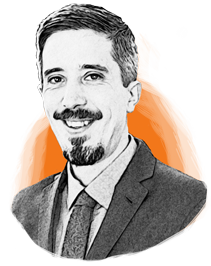Two years after GlaxoSmithKline traded its cancer portfolio to Novartis, new CEO Emma Walmsley in 2017 reorganized the company’s R&D efforts and introduced a plan to focus on oncology. Until recently, however, its only oncology candidate was GSK2857916, a B cell maturation antigen (BCMA) antibody in a phase II trial for multiple myeloma, which began in July 2018.
The company has changed all that with the announced acquisition of cancer company Tesaro, for which it has agreed to pay $5.1 billion.
With the purchase, GSK gains Tesaro’s FDA-approved Zejula (niraparib) and three clinical oncology assets, as well as a “U.S. and European commercial footprint in oncology,” according to the company.
Zejula is a once-daily oral poly(ADP-ribose) polymerase (PARP) inhibitor approved for the treatment of ovarian cancer, in the same category as other PARP inhibitors, including Lynparza (olaparib, AstraZeneca), Rubraca (rucaparib, Clovis Oncology) and Talzenna (talazoparib, Pfizer).
To overcome the competition, GSK is looking at applications beyond the DNA repair defects known as BRCA mutations in other diseases. Currently, clinical trials are underway for Zejula in ovarian cancer patients with homologous recombination deficiency (HRD) –– which as many as 50% of patients show evidence of, compared with 15% for BRCA mutations. They key to this approach is finding the right patients, so GSK has established a partnership with 23andMe.
GSK is also considering exiting the respiratory field in order to invest more in oncology.

David is Scientific Editor in Chief of the Pharma’s Almanac content enterprise, responsible for directing and generating industry, scientific and research-based content, including client-owned strategic content, in addition to serving as Scientific Research Director for That's Nice. Before joining That’s Nice, David served as a scientific editor for the multidisciplinary scientific journal Annals of the New York Academy of Sciences. He received a B.A. in Biology from New York University in 1999 and a Ph.D. in Genetics and Development from Columbia University in 2008.